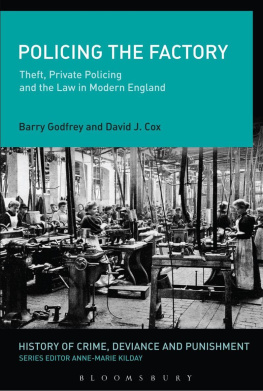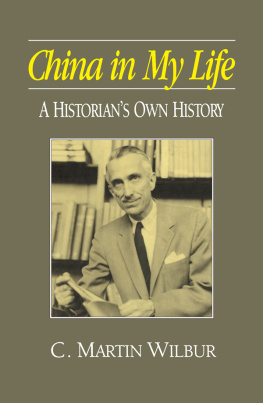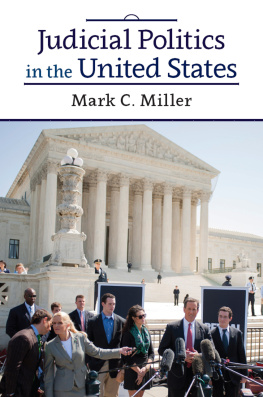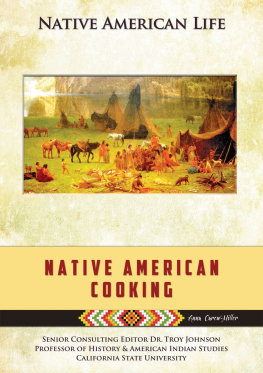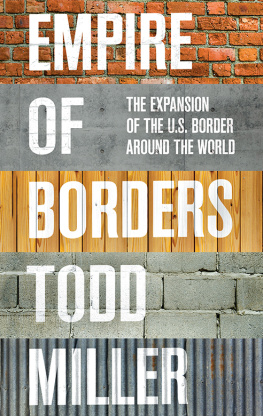A History of Private Policing
in the United States
History of Crime, Deviance and Punishment
Series Editor: Anne-Marie Kilday, Professor of Criminal History, Oxford Brookes University, UK
Editorial Board:
Neil Davie, University of Lyon II, France
Johannes Dillinger, University of Mainz, Germany
Wilbur R. Miller, State University of New York, USA
Marianna Muravyeva, University of Helsinki, Finland
David Nash, Oxford Brookes University, UK
Judith Rowbotham, Nottingham Trent University, UK
Academic interest in the history of crime and punishment has never been greater and the History of Crime, Deviance and Punishment series provides a home for the wealth of new research being produced. Individual volumes within the series cover topics related to the history of crime and punishment, from the later medieval to modern period and in both Europe and North America, and seek to demonstrate the importance of this subject in furthering understanding of the way in which various societies and cultures operate. When taken together, the works in the series will show the evolution of the nature of illegality and attitudes towards its perpetration over time and will offer their readers a rounded and coherent history of crime and punishment through the centuries. The series broad chronological and geographical coverage encourages comparative historical analysis of crime history between countries and cultures.
Published:
Policing the Factory, Barry Godfrey
Crime and Poverty in 19th-Century England, Adrian Ager
Print Culture, Crime and Justice in Eighteenth-Century London, Richard Ward
Rehabilitation and Probation in England and Wales, 19001950, Raymond Gard
The Policing of Belfast 18701914, Mark Radford
Crime, Regulation and Control during the Blitz, Peter Adey, David J. Cox and Barry Godfrey
Forthcoming:
The Italian Prison in the Age of Positivism, 18611914, Mary Gibson
Deviance, Disorder and Music in Modern Britain and America, Cliff Williamson
Fair and Unfair Trials in the British Isles, 18001940, eds. David Nash and Anne-Marie Kilday
A History of Private Policing
in the United States
Wilbur R. Miller
To Carole
Who knows all the reasons why
1 Self-defense. Savage Arms Co. advertisement, National Geographic Magazine 25, no. 6 (June 1914)
2 The lynching of J.L. Compton and Joseph Wilson, April 30, 1870. Helena, Montana. The Hangmans Tree. Postcard. Printed 192030. Wikimedia Commons, Public Domain
3 Security Guard at Chevy Chase Ice Palace, 1942. Edwin Rosskam photo, Farm Security Administration, War Information office. Library of Congress Prints and Photographs Division, LC-USF34-012857-D (b&w film neg.)
4 A Pinkerton Arrest. Allan Pinkerton, Thirty Years a Detective: A Thorough and Comprehensive Expose of Criminal Practices of All Grades and Classes (New York: G.W. Carleton and Co., 1884), p. 378
5 Strikebreakers Escorted by Pinkertons, Hocking Valley Ohio, 1884. Frank Leslies Illustrated Newspaper, October 25, 1884, p. 152. Library of Congress Prints and Photographs Division, LC-USZ62-118122 (b&w film copy neg.)
6 Stripes But No Stars, Convicts leased to work on railroad, Asheville, N.C., 1892. Note guards in background, one with shotgun. Wikimedia Commons, Public Domain
A History of Private Policing in the United States is an overview or synthesis of the history of several forms of private policing, not only security corporations and investigators but also self-defense, vigilantism, and private prisons. Drawing from a wide range of published literature from academic research to newspaper and website accounts, old and new, it seeks to describe private policing and place it in the context of the structure and ideology of the American state. Historians have thoroughly covered some areas (self-defense, vigilantism, private detectives, private prisons), and sociologists, criminologists, political scientists, and lawyers have discussed modern aspects of security services of all types and the relation of private to public policing. However, with a notable exception, historians have not brought together the literature in a general overview of the development of private policing in the United States. This book should give readers knowledge of how important private policing has been in American history and a starting point for those wishing to pursue more detailed studies of specific aspects of private policing.
As always there are people to thank: first, Beatriz Lopez, Senior Editorial Assistant at Bloomsbury, for her patience with a sometimes inefficient author. Manikandan Kuppan of Integra-PDY was also patient in coordinating proofreading and other aspects of production. Thanks, collectively to the many people who have commented on and questioned my ideas at paper presentations and to people with whom I have conversed about private policing. Both groups have stimulated my thinking and reminded me of types of private policing I have overlooked. Finally, thanks to the anonymous reader for Bloomsbury, whose constructive comments have improved the book.
Private policing in some form is as old as people with property worth protecting or injuries needing redress. It is certainly older than modern public policing, which began in 1829 with Londons Metropolitan Police. In its broadest definition, private policing is control by one group over another, often independently of the state, sometimes against it, but also actively or tacitly allied with it in carrying out the same coercive control. Under this broad definition, one type of private policing is individuals defending themselves or groups organizing to protect neighborhoods or drive away people they deem undesirable. The first type includes self-defense, vigilantism, and neighborhood patrols. These are forms of policing, reacting to crime or deviance, but not police. The second type is more obvious: profit-making companies carrying out police functions of order maintenance, detection and prevention of crime. They include private detectives, ranging from individuals in dingy offices to global corporations, from routine investigators of insurance fraud to highly specialized analysts of information related to national security. In greater numbers than detectives, private companies provide armed and unarmed security guards, who protect property in shopping centers, gated communities, concert and sporting events, theaters, factories and warehouses, and docks. Bouncers in bars and clubs and body guards for individuals who think they are important enough to require personal protection are also types of private security. Bail for people pending trial is dependent on a private industry of bondsmen, who hire bounty hunters to track down people who forfeit their bail money by fleeing. Private prisons, while still a minority of American prisons, are influential in shaping public policy to favor mass incarceration.
Private policing is not unique to the United States, either in the past or in the present. Nevertheless, there are aspects of the American state and ideology especially favorable to it. The structure of the state, with power diffused through different levelscentral and local, public and privateis a major factor. The development of representative democracy before consolidation of an administrative state influenced the way public policing developed, creating an opening for private police. Political appointment or control led to corruption, which led many reformers to turn to private policing for areas, such as vice, the police were unwilling or unable to control. Most people tolerated arbitrary exercise of police power as long as it was directed against minority groups or marginal individuals, an attitude not greatly different from vigilantism. The dominant American political ideology of individualism influenced a common preference for private action over governmental actionmany people see private policing as less threatening to their freedom than public policing and as cheaper and more efficient. Finally, there were specific historical developments such as the late creation of detective forces in American police departments, which gave an opportunity for private detectives, and the fierce class conflict of the late nineteenth and early twentieth centuries encouraged many employers to rely on private control of labor union organizing and strikes. More recently, the privatization of public services movement of the 1980s and later encouraged entrepreneurial private security and private prison firms to seek government contracts. Many elements, from the nature and structure of the state to more specific or practical aspects, made the United States a favorable national context for private policing.



